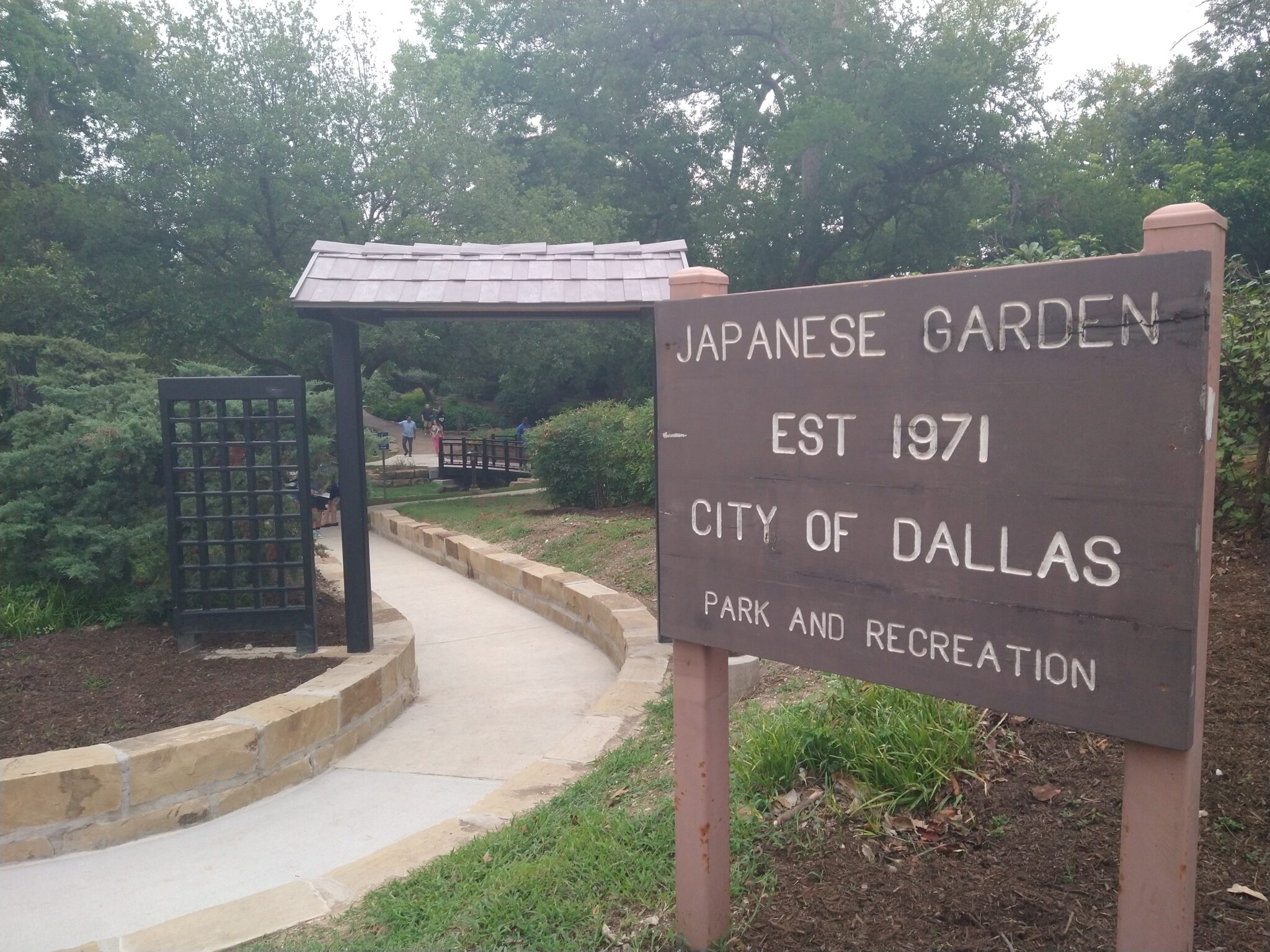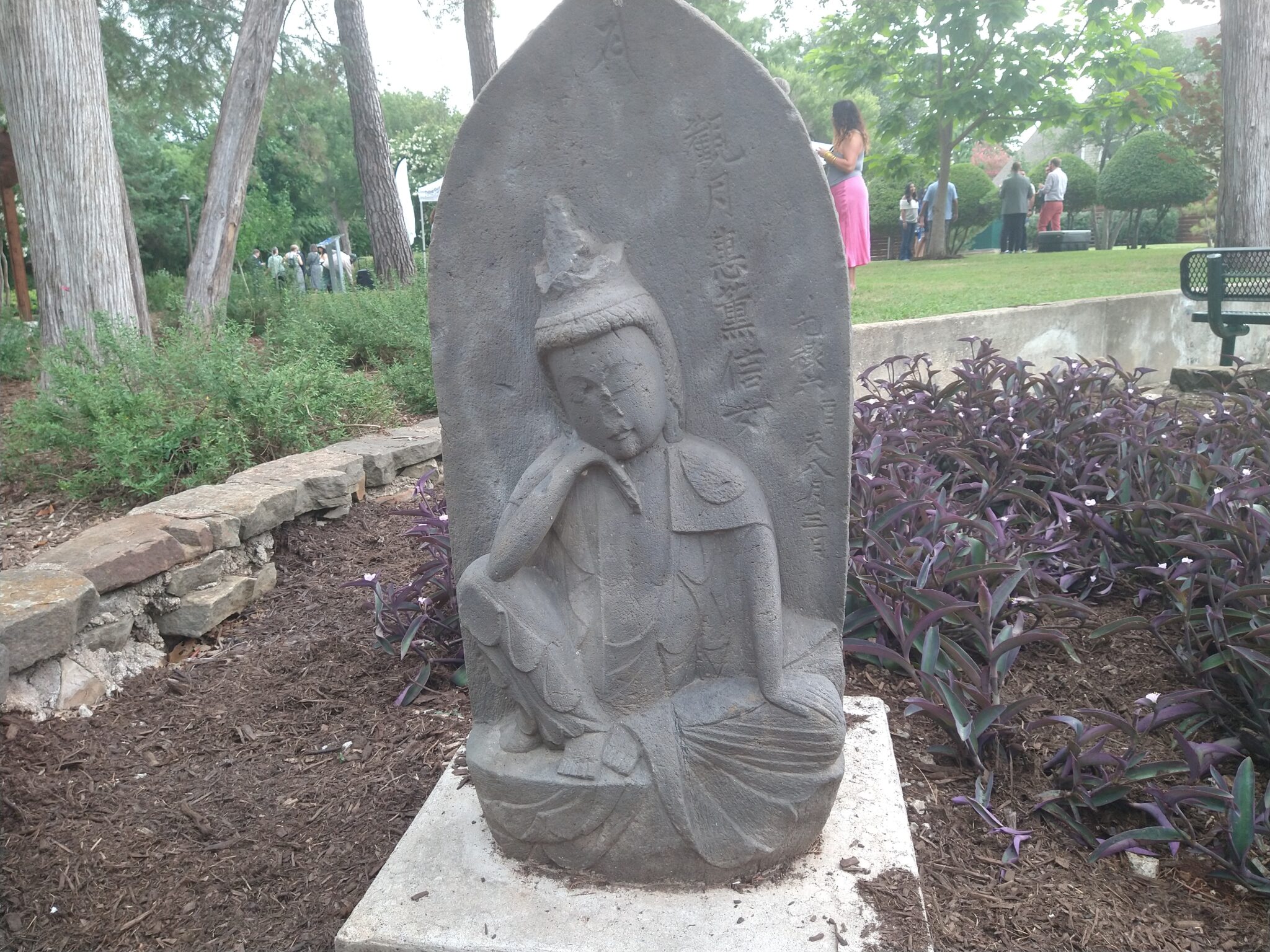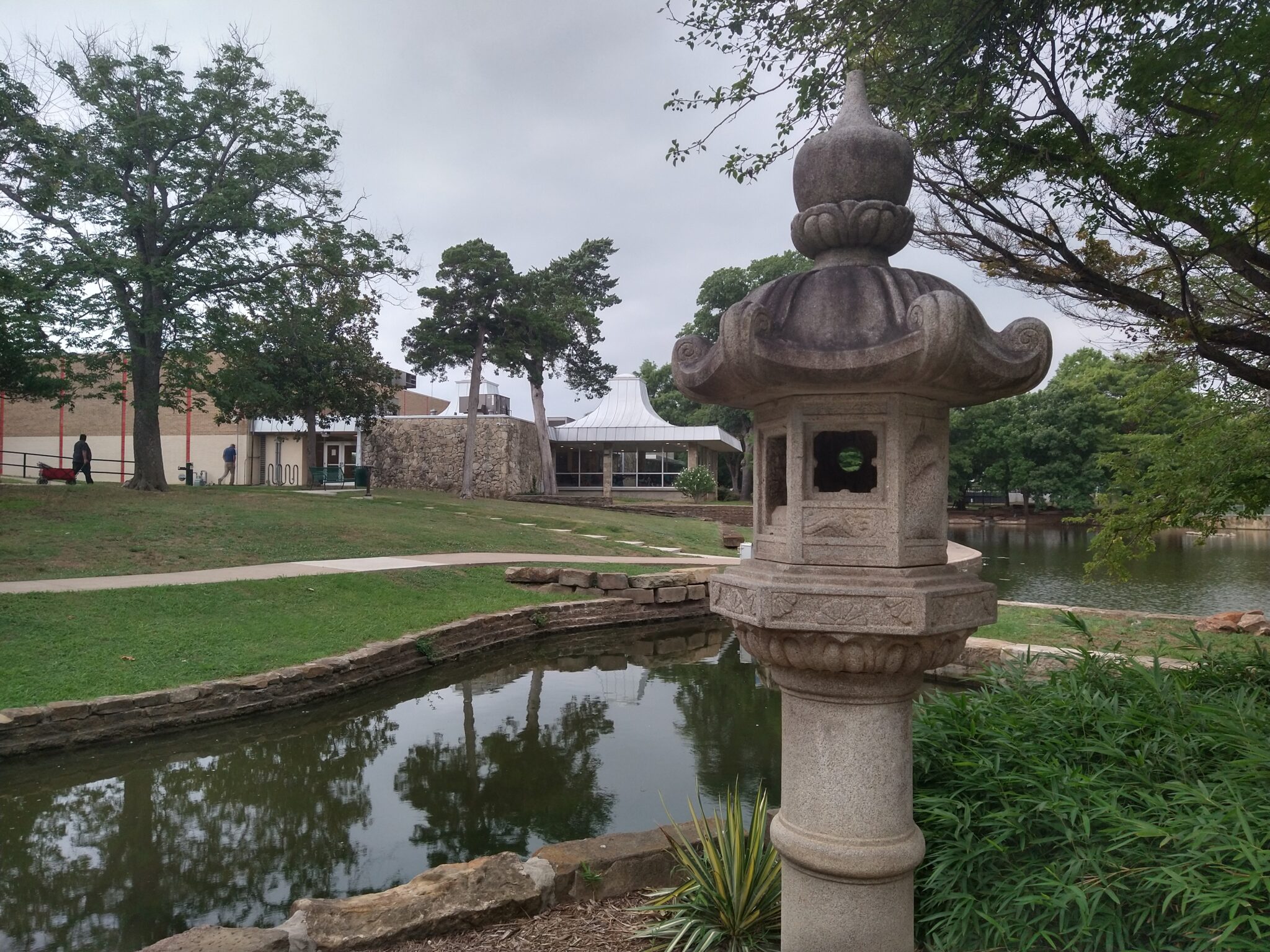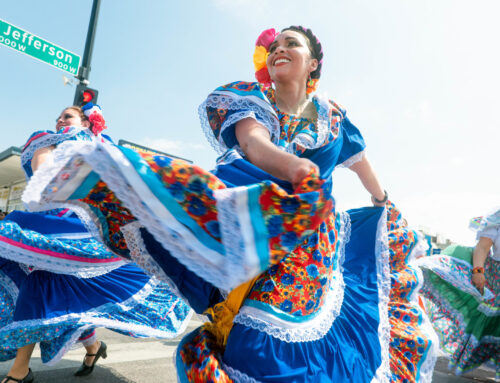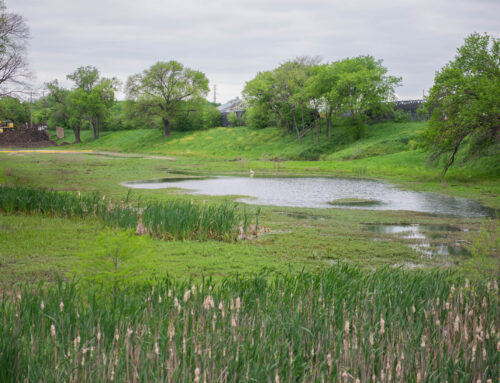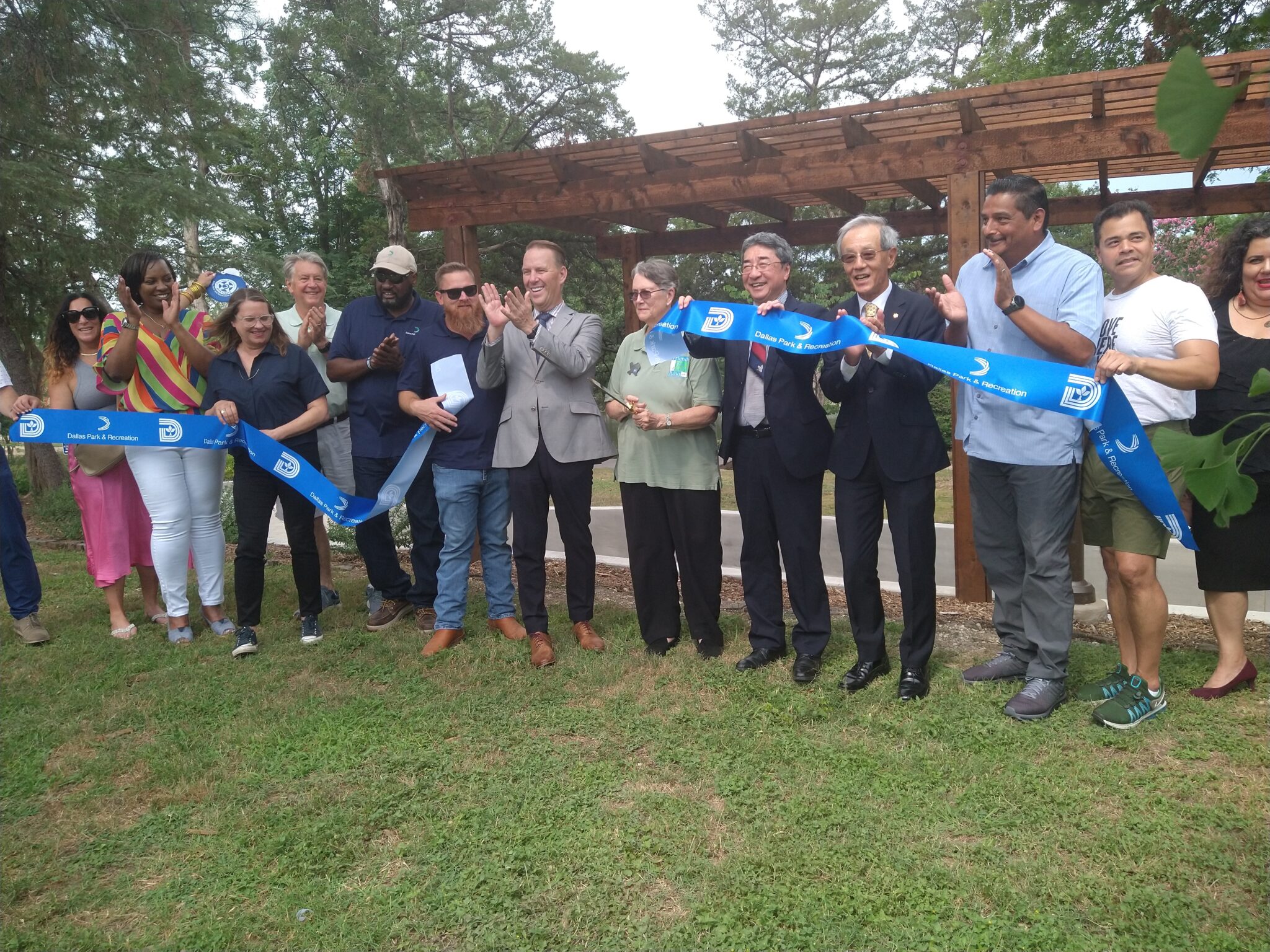
The ribbon cutting at Kidd Springs Park marked the official opening of the restored Japanese Garden. Photo by Lilith Swint.
After eight years of advocacy and a $1 million restoration project, the Japanese Garden at Kidd Springs Park was declared open Friday morning.
The ribbon cutting ceremony was attended by a long list of Oak Cliff park advocates as well as Sam Shichijo, the Honorary Consul of Japan in Dallas, and Consul-general Hirofumi Murabayashi from Houston.
Barbara Barbee, Friends of Oak Cliff board member and former D1 park board member, said Shichijo and Murabayahi’s attendance was evidence of the recognition the restored park was receiving.
Barbee was repeatedly applauded throughout the ceremony for “championing the park” throughout her eight years as the park and recreation board member for the district.
The garden, which is located behind the park’s pond, was first installed in 1971 and fell into disrepair throughout the 2000s.
It was not until a 2015 grant from the Office of Art and Culture allowed artist Cynthia Mulcahy to dig into the park’s history that activists began discussing restoring the park.
Mulcahy looked through oral histories as well as municipal archives in Dallas, San Francisco and New York, and discovered the statues featured in the garden date back to the 17th century.
“They are the oldest works in Dallas’s public art collection, that they didn’t know they had,” Mulcahy said.
While some neighborhood members began privately fundraising for the park restoration around that time, funding from the 2017 bond program provided the $1 million to upgrade the water features and walkways, which are now ADA compliant.
- A historic Japanese statue. Photo by Lilith Swint.
- A historic Japanese statue. Photo by Lilith Swint.
Crystal Ross, Deputy Director of the parks department, said the upgrades to the park will only increase the popularity of what is already a well regarded green space in the neighborhood.
“We have 410 parks in Dallas. I’m not going to rank them, but I think if you look around, you’ll see this is one of the most photographed parks,” Ross said.
The Japanese garden is open to the public and free of charge. A parking lot on West Canty Street just past the aquatic center leads directly to the garden.
If you visit the park on a Wednesday morning, you may even catch a glimpse of Sumo practice.

